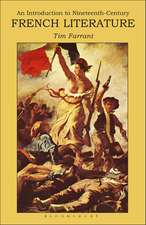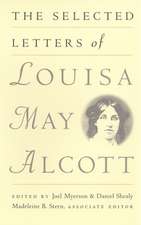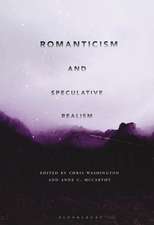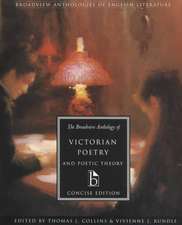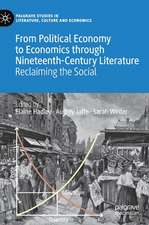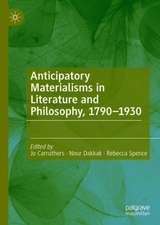Hunger, Poetry and the Oxford Movement: The Tractarian Social Vision
Autor Dr Lesa Schollen Limba Engleză Hardback – 22 ian 2020
| Toate formatele și edițiile | Preț | Express |
|---|---|---|
| Paperback (1) | 217.27 lei 6-8 săpt. | |
| Bloomsbury Publishing – 28 iul 2021 | 217.27 lei 6-8 săpt. | |
| Hardback (1) | 598.84 lei 6-8 săpt. | |
| Bloomsbury Publishing – 22 ian 2020 | 598.84 lei 6-8 săpt. |
Preț: 598.84 lei
Preț vechi: 858.81 lei
-30% Nou
Puncte Express: 898
Preț estimativ în valută:
114.58€ • 119.96$ • 94.81£
114.58€ • 119.96$ • 94.81£
Carte tipărită la comandă
Livrare economică 05-19 aprilie
Preluare comenzi: 021 569.72.76
Specificații
ISBN-13: 9781350120723
ISBN-10: 1350120723
Pagini: 232
Dimensiuni: 156 x 234 mm
Greutate: 0.54 kg
Editura: Bloomsbury Publishing
Colecția Bloomsbury Academic
Locul publicării:London, United Kingdom
ISBN-10: 1350120723
Pagini: 232
Dimensiuni: 156 x 234 mm
Greutate: 0.54 kg
Editura: Bloomsbury Publishing
Colecția Bloomsbury Academic
Locul publicării:London, United Kingdom
Caracteristici
Casts new light on such major Victorian poets as Christina Rossetti, Gerard Manley Hopkins and Lord Alfred Tennyson
Notă biografică
Lesa Scholl is Head of Kathleen Lumley College, University of Adelaide, Australia. Her previous publications include Translation, Authorship and the Victorian Professional Woman (2011) and Hunger Movements in Early Victorian Literature (2016).
Cuprins
Preface Introduction: Containing Hunger and Doctrines of Reserve Chapter One: Economizing Emotion and Moderating Hunger Chapter Two: Looking Outward: The Moment of Lyrical Connection Chapter Three: Embracing the Community as One People Chapter Four: Social Action Demonstrated Conclusion: 'Seeing, touching, tasting are in thee deceived': Responding to the Fragmentation of Poetry, Community and the Senses Bibliography Index
Recenzii
As in any good book about history or literature, the old categories of conservative or socialist are exploded in this careful scholarship.
[The] book is a striking effort to trace the influence of Tractarianism on Victorian literature in a new way, extending out of theology into the social and political sphere.
This book is both brilliant and urgent. Broadly and incisively probing the aesthetic and social practices of Tractarian reserve, Lesa Scholl revises our understanding of Victorian poetry and Victorian religion while also speaking to social injustice in our own time.
This bold new study of the influence of the Tractarian doctrine of Reserve on Victorian poetry and poetics radically reframes our thinking about Anglo-Catholic engagement with nineteenth-century social issues. Tractarianism, often characterised as more interested in matters of theology, liturgy and ritual than social justice and activism, is revealingly explored instead in light of its concern with poverty and hunger. In this lively and revisionist account, the poets whose formative years were shaped by the Oxford Movement are re-presented as agents of a social mission as crucial to their religious and social identity as that of their Evangelical peers.
[The] book is a striking effort to trace the influence of Tractarianism on Victorian literature in a new way, extending out of theology into the social and political sphere.
This book is both brilliant and urgent. Broadly and incisively probing the aesthetic and social practices of Tractarian reserve, Lesa Scholl revises our understanding of Victorian poetry and Victorian religion while also speaking to social injustice in our own time.
This bold new study of the influence of the Tractarian doctrine of Reserve on Victorian poetry and poetics radically reframes our thinking about Anglo-Catholic engagement with nineteenth-century social issues. Tractarianism, often characterised as more interested in matters of theology, liturgy and ritual than social justice and activism, is revealingly explored instead in light of its concern with poverty and hunger. In this lively and revisionist account, the poets whose formative years were shaped by the Oxford Movement are re-presented as agents of a social mission as crucial to their religious and social identity as that of their Evangelical peers.






